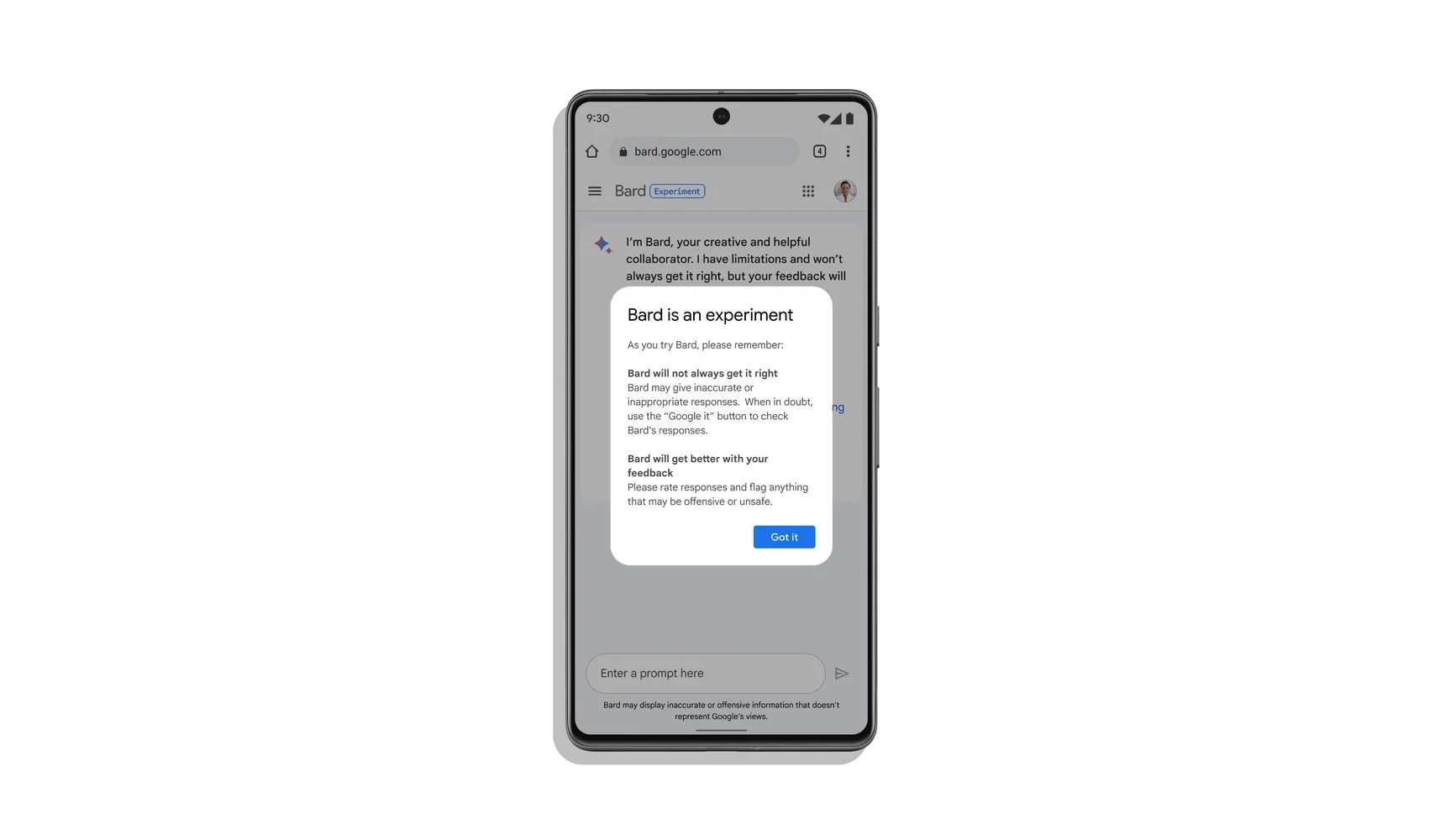Google has begun rolling out early access to its Bard chatbot in the US and UK.
The ChatGPT rival was announced via a blog post in February, seemingly to get ahead of Microsoft’s own big reveal event the next day.
Microsoft’s plans to integrate a new version of ChatGPT into its Bing search engine set off alarm bells at Google. In response, Google CEO Sundar Pichai invited the company’s founders – Larry Page and Sergey Brin – to return for a series of meetings to review its AI strategy.
In stark contrast to Microsoft’s polished event, a last-minute event held by Google the day after was a mess. Previous announcements were rehashed, a presenter’s phone went missing, and Pichai was nowhere to be seen.
Googlers took to the internal forum ‘Memegen’ to criticise Pichai’s leadership. One wrote, “Dear Sundar, the Bard launch and the layoffs were rushed, botched, and myopic” and called on Pichai to “please return to taking a long-term outlook.”
During a Bard promo video, an incorrect answer was shown that sent Google’s shares plummeting and wiped $120 billion from its value.
Google AI Chief Jeff Dean had allegedly even warned colleagues ahead of the reveal that it cannot rush products like Bard to the market because the company has more “reputational risk” in providing wrong information.
The contrast between Microsoft’s and Google’s announcements was stark. Microsoft looked unstoppable while Google appeared to be in absolute chaos. However, things shifted in the coming weeks.
Users began reporting “unhinged” responses from Microsoft’s chatbot—including not just incorrect information, but also the bot appearing to be in a depressive state, wanting to be human, and even claiming to spy on people through their webcams.
Suddenly, that one error in Bard’s promo video didn’t look so bad. Furthermore, it justified Google’s decision to hold fire on releasing Bard to the public.
Google now appears to be comfortable with Bard being ready for public testing:
“Our work on Bard is guided by our AI Principles, and we continue to focus on quality and safety,” wrote Google in a blog post.
“We’re using human feedback and evaluation to improve our systems, and we’ve also built in guardrails, like capping the number of exchanges in a dialogue, to try to keep interactions helpful and on topic.”
In a quick test, Bard (left of screenshot) is subjectively more concise with its responses than Bing (right of screenshot) while the latter is slightly more comprehensive:

However, there are currently a few key differences:
- Bing’s chatbot wants to continue the conversation and suggests possible follow-up questions.
- Bing’s chatbot makes it clear where it’s getting its information so users can get more background.
- Bard reminds the user before starting a conversation that it has “limitations” and “won’t always get it right”. Furthermore, the page always displays a warning that Bard “may display inaccurate or offensive information that doesn’t represent Google’s views.”
You can sign up to try Bard here. Google is currently rolling out access in the US and UK but will be expanding to other countries and languages over time.
(Image Credit: Google)

Want to learn more about AI and big data from industry leaders? Check out AI & Big Data Expo taking place in Amsterdam, California, and London. The event is co-located with Digital Transformation Week.
Explore other upcoming enterprise technology events and webinars powered by TechForge here.
The post Google plays it safe with initial Bard rollout appeared first on AI News.
